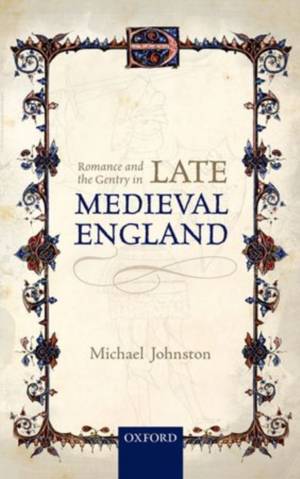
- Retrait gratuit dans votre magasin Club
- 7.000.000 titres dans notre catalogue
- Payer en toute sécurité
- Toujours un magasin près de chez vous
- Retrait gratuit dans votre magasin Club
- 7.000.0000 titres dans notre catalogue
- Payer en toute sécurité
- Toujours un magasin près de chez vous
175,95 €
+ 351 points
Description
Romance and the Gentry in Late Medieval England offers a new history of Middle English romance, the most popular genre of secular literature in the English Middle Ages. Michael Johnston argues that many of the romances composed in England from 1350-1500 arose in response to the specific socio-economic concerns of the gentry, the class of English landowners who lacked titles of nobility and hence occupied the lower rungs of the aristocracy. The end of the fourteenth century in England witnessed power devolving to the gentry, who became one of the dominant political and economic forces in provincial society. As Johnston demonstrates, this social change also affected England's literary culture, particularly the composition and readership of romance. Romance and the Gentry in Late Medieval England identifies a series of new topoi in Middle English that responded to the gentry's economic interests. But beyond social history and literary criticism, it also speaks to manuscript studies, showing that most of the codices of the "gentry romances" were produced by those in the immediate employ of the gentry. By bringing together literary criticism and manuscript studies, this book speaks to two scholarly communities often insulated from one another: it invites manuscript scholars to pay closer attention to the cultural resonances of the texts within medieval codices; simultaneously, it encourages literary scholars to be more attentive to the cultural resonances of surviving medieval codices.
Spécifications
Parties prenantes
- Auteur(s) :
- Editeur:
Contenu
- Nombre de pages :
- 318
- Langue:
- Anglais
Caractéristiques
- EAN:
- 9780199679782
- Date de parution :
- 12-08-14
- Format:
- Livre relié
- Format numérique:
- Genaaid
- Dimensions :
- 218 mm x 137 mm
- Poids :
- 521 g

Les avis
Nous publions uniquement les avis qui respectent les conditions requises. Consultez nos conditions pour les avis.






